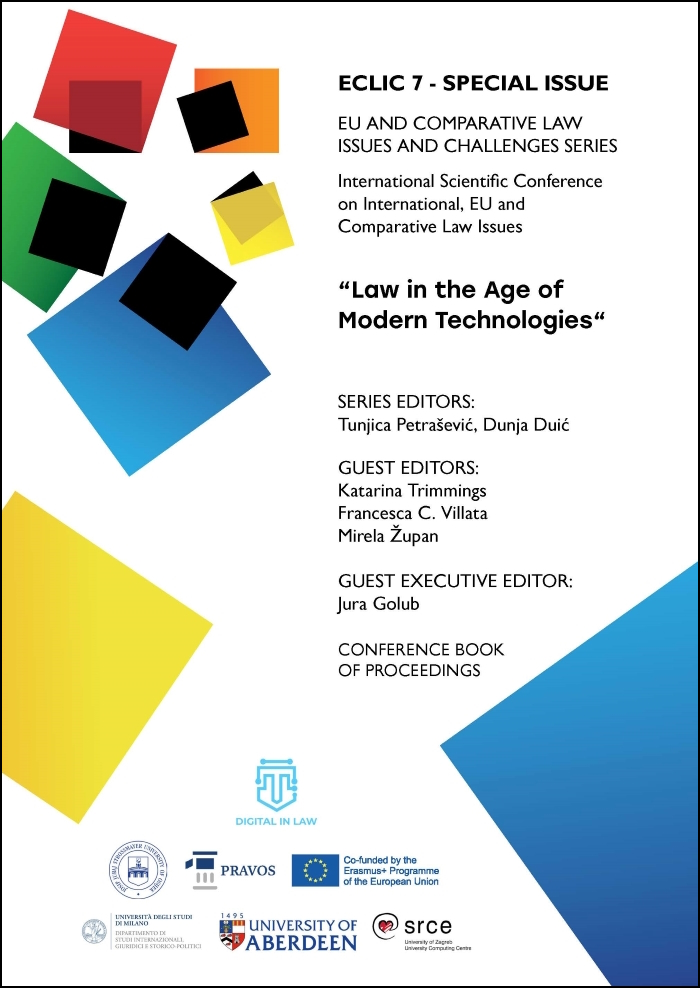WHEN IS A CRYPTOCURRENCY TRANSFER INTERNATIONAL IN DISTRIBUTED LEDGER TECHNOLOGY-BASED SYSTEMS?
DOI:
https://doi.org/10.25234/eclic/28263Abstract
This paper addresses the issue of command liability for severe criminal offenses committed by means of autonomous and semi-autonomous weapons. Research has shown that the leading military forces around the world are intensively working on designing autonomous weapons, which will provide them an enormous tactical ad logistical advantage in warfare. As the national and international law concept of command responsibility to date has been based on the idea of humans selecting and ordering the destruction of targets, the author raises the question of whether this has also created a set of legal norms that could adequately regulate such situations in the context of new warfare techniques. The first section of the paper briefly outlines the direction of the development of autonomous weapons. The second section analyzes the provisions on command responsibility of the Rome Statute and the Statute of the ad hoc tribunals for Yugoslavia and Rwanda. The national legislation of some countries and the significant jurisprudence in this field is also analyzed and projected into the context of semi-autonomous and autonomous warfare. A special emphasis is placed on the issue of unconscious negligence. The objective of the paper is to indicate the legal gaps and to propose guidelines for future development.
Downloads
Published
How to Cite
Issue
Section
License
Copyright (c) 2023 Burcu Yüksel Ripley

This work is licensed under a Creative Commons Attribution-NonCommercial 4.0 International License.
Authors retain the copyright on the papers published in the Journal, but grant the right of first publication to the Journal. Papers accepted for publication or already published in ECLIC of the Faculty of Law in Osijek may be published by the author(s) in other publications only with proper notice of its previous publication in ECLIC.


